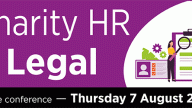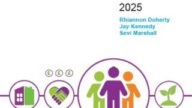We need to beware trustees’ regulatory pain ‘threshold’
We've responded to the Charity Law Threshold changes, take a look at what we think.
There are nearly a million mostly voluntary trustees in the UK, and without them, the charity sector just wouldn’t function. And without a functioning charity sector, society itself – or vast parts of it anyway – wouldn’t function either.
Trusteeship is an important responsibility, and it’s important to recognise and celebrate the critical contribution of trustees. But it’s also incumbent on all of us – especially policy-makers in government and the regulators that oversee charities – to try and create an environment where trusteeship is something that people want to do and volunteer their time for, and not a bureaucratic nightmare full of disproportionate regulatory requirements and overbearing risk aversion.
Thankfully, there are several opportunities coming up where we have a chance to influence some policy issues that affect all trustees, potentially in a way that makes their already challenging job a bit easier. These might seem like boring and technical matters, but they’re really important when it comes to the process of putting together and submitting annual reports and accounts.
First up is a consultation from the Department for Culture Media and Sport (DCMS) about ‘Financial thresholds in charity law’. This is proposing changing various reporting thresholds at which, for example, a charity is required to submit an Annual Return, use accruals accounting, or have an audit. Many of these thresholds have not been uprated for many years or even decades, which means that charities of the same income size now are being dragged into more costly and complex requirements due to the effect of inflation.
It’s great that the government are addressing this problem and we need to take advantage of the opportunity. Although it may sound like a great cure for insomnia, this kind of thing is actually really important for the operating environment for all charities.
It affects more universal questions like the type and quality of data we have about the sector, but also more practical issues like whether your trustees can get their charity’s annual report and accounts done well, on time, without costing the earth. And even maybe, whether they can get a good night’s sleep at the end.
The second opportunity is around the new Statement of Recommended Practice (SORP), which translates international accounting rules into a form that charities can use. This is open for consultation until 20 June. DSC will respond to that consultation in due course, so watch this space.
It’s important to recognise that there’s a tension between needing to alleviate the regulatory burden on charities and trustees wherever it’s possible and prudent to do so, and the need to maintain transparency and accountability about what charities do and how they do it. DSC believes in charities being transparent but we also believe in regulation that’s ‘proportionate, appropriate and enabling’ for charities. It’s about striking the right balance.
Rules and regulations, like the proverbial stone that doesn’t roll, tend to gather moss. They accumulate and grow more complex and established. They get added to, rather than subtracted from. So it’s a good thing to review them periodically and see whether and why they are still needed, and how they could be adapted or made more rational.
In our response, we put forward what we think are some sensible proposals to rationalise some of these thresholds under consideration and make them more proportionate and less burdensome, particularly for smaller organisations.
Download DSC’s response here. If you agree with our approach and thinking, please feel free to use our ideas in your own responses. Look out also for our SORP response coming soon. And make sure you don’t miss the chance to have your say – there’s still time!



